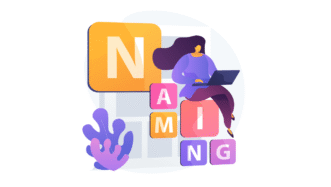LESSON OVERVIEW
In this lesson about books, students watch a video about the Harry Potter book series, learn vocabulary related to reading and write a short book review.
C2 / Proficiency90 minStandard LessonUnlimited Plan
VOCABULARY & SPEAKING
In the warm-up activity students talk about books they like reading. Then, they do a vocabulary task in which they need to complete missing words in sentences about reading (e.g. heavy-going, avid reader, captivating). They also discuss whether the sentences are true for them. Next, students read three short descriptions of famous books and try to guess what they are (e.g 1984, Pride and Prejudice, the Harry Potter books). They also have to find words or phrases in the descriptions and match them with provided synonyms (e.g. plagued with, diminish, bigotry). Finally, students talk about the three books and decide whether they are must-reads and why. The vocabulary learned in this part of the lesson about books will be used in the video and the writing task.
VIDEO & WRITING
Before watching the video, students read a statement about reading fiction and think of an argument to refute it. They watch the first part of the video and check their answer. While watching the second part of the video, students need to listen for arguments to refute three more statements about reading. After the video, students read some famous quotes from the Harry Potter books and try to decide what they can teach people. They also spend some time discussing the video, the Harry Potter books, other stories for children and different characters in books. In the last part of this lesson about reading, students write a short review of a book of their choice. They need to include some information about the listed topics (e.g. plot, their reading experience). They are also encouraged to use the vocabulary from the lesson.
Subscribe to unlock these and many other Standalone lesson lesson plans with the Unlimited planWORKSHEETS














Excellent lesson plan 🙂
Thanks 🙂
Great lesson plan although I have a small issue with the “stand up against” phrasal verb.
Correct phrasal verb would be “stand out against” or “stand up to”.
Thank you for your comment! We believe that ‘stand up to’ and ‘stand up against’ have the same meaning, and we decided to go with the second one as it’s the one used in the video. We also think that ‘stand out against’ is not that common to be included in the lesson.
Excellent! Students (especially the Harry Potter fans) loved it
Thanks! We’re so happy to hear that your students loved it 🙂
Thanks
Excellent!
Great to know you liked it 🙂
It seems the most interesting worksheets I’ve ever used. Thanks for sharing
Thanks, I’m glad you like it 🙂
so impressive
Thank you so much 🤗